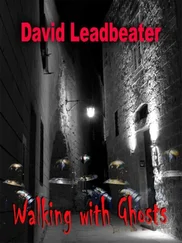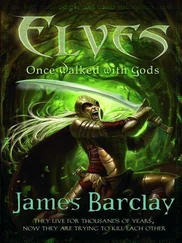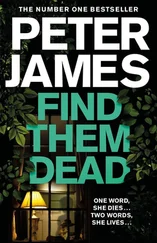Marcus walks past the Holiday supermarket and a silent surge hits him from being this close to Kristen, only a parking lot, a brick wall, four small eat-in tables, a rack of magazines, and two cash registers away. He could go in and surprise her — she might like that — but he talks himself out of it.
He walks by the Kopper Kettle and the U.S. Bank and pauses in front of the ice cream shop where he used to work. A woman dusts the empty barstools. He passes the old theater converted into a church and the park with bent basketball rims and stops on a bridge over the North Fork of the Feather River. He works his mind toward hopeful images of the evening: Kristen sliding her pants off, her bra, standing in his doorway. He pauses to survey the cold water of the river, and he wonders how the lake can sit low in the summer with all the water running underneath him.
When he arrives, his apartment is cold, icicles hanging from the eves in front of the living room window. He turns the thermostat up to eighty, hoping it’ll hit sixty-five. Uncooked pasta sits in a pot for the dinner he had planned to throw together after work. The living room recliner calls to him, and he lights another cigarette. Marcus stares out the window, over at the post office, an old building with two flights of stairs. They’re finishing construction on a path for the handicapped. Marcus has never been in a wheelchair and wonders if anyone in the town will use the ramp. The route to the doors will be longer but easier on the legs.
At dinner Kristen gives him a plain red shirt before pouring herself a glass of cheap red wine.
“Something new,” she says.
He hates the shirt but promises her he’ll think about wearing it.
After the pasta they relax on the couch and flip through the television channels. Channel six, eight, eleven, twelve, and Kristen tells him to stop.
“Keep it here,” she says. The evening news.
Marcus holds the remote, index finger on the black channel button, ready to press. Colin Powell inside the UN, photos of Iraqi buildings taken from space, arrows, ultimatums. Marcus stays silent and listens for Kristen’s breathing, but all he hears is his apartment’s undersized heater humming and Powell’s voice: “We know that Saddam Hussein is determined to keep his weapons of mass destruction; he’s determined to make more.” In his peripheral vision Marcus sees Kristen put the tip of her finger in her mouth. As the segment winds down, he prays for anything except a piece about car bombings or friendly fire or any mention of Afghanistan, and his fears soon dissipate when a mug shot of Phil Spector appears in a small box near the left side of the news anchor’s head. “Producer of Let It Be arrested for murder.”
Marcus turns off the television and puts his arm around Kristen.
“We should get out of here. Go somewhere.”
“Yeah,” she says. “I’ll go.”
“Mexico is warm.”
“Dreams. Only dreams.”
“We can drive.”
“You’re not serious. We work, remember?”
“Closer?”
“Marcus.”
“I’m serious. Any place in the world you could go, where’d it be?”
She pictures the gaping hole in the gigantic redwood, envisions her car driving through, a thousand growth rings surrounding her, but she feels Wintric in the vision, feels him in the car with her.
“San Francisco,” she says. “Go see Bonds.”
“Doable. In a couple months, it’ll be perfect.”
Eleven at night, and she asks Marcus if he wants her to do anything special, and he summons the courage to say yes. He’s nervous, but after hundreds of classroom daydreams, he can give her detailed instructions. He undresses, positions himself in bed under all the blankets, closes his eyes, and waits. The streetlight shines in enough that when he opens his eyes, he sees her in the doorway and knows it’s no longer a fantasy.
“Kristen,” he says.
She stands in the doorway. She hears her name and waits in the near darkness. She knows he’ll call for her again.
THREE MONTHS AFTER his prison stint for starting a forest fire that killed a man, Armando’s father drives his family past the Supermax outside Florence, Colorado. He’s in good spirits.
“You know the guy that invented the Richter scale? Dude was a nudist,” he says.
The Torres family laughs together inside their minivan as they head back to Colorado Springs after an overnight campout in the Wet Mountains. Fifteen-year-old Armando rests in the back seat with his younger sister. She holds her stomach and smiles. Armando half listens, half mentally undresses a girl in his grade named Marie who sports a pinkish birthmark on her cheek that resembles Wisconsin.
“I can’t help but imagine a naked guy, poolside, when an eight-point-oh strikes a couple miles down the road. Bet he wishes he had pants on.”
Armando’s mother smiles and play-punches his father in the shoulder.
“So you got gladiators,” he says. “And they battle it out and finally one stands over the other one, sword high, and he checks out the emperor to see if the near-vanquished will live or die, and the crowd gives the thumbs-up. You say, ‘Good news,’ right? No, my dear family. Pollice verso. With a turned thumb. The movies have it wrong. Thumbs down, sword down. Thumbs up, dead.”
“So we should give a thumbs-down when someone does something right?” Armando’s mother asks. “Weird.”
“There’s a flower that opens up at night,” his father says. “Bats do the work, not bees. Your turn.”
Armando extends both thumbs up and smirks at his sister. His mind works, and a school bus passes the other way. “There’s blind fish in caves.”
“One huge, linked cave. In Kentucky. What else you got? Give me something good.”
“My English teacher says Shakespeare ripped off his stories.”
“Shakespeare didn’t rip off anything ’cause he didn’t write the plays,” his father says. “Edward de Vere, Earl of Oxford. That’s a fact. Listen up kids, read widely, but only pay attention to de Vere’s stuff and three others — William Blake, Bill Watterson, Jane Austen. That’s it.”
“You’re full of it,” says Armando’s mother, “but you’re right about Austen.” Then, smiling back and winking at Armando: “Listen, a half, maybe a quarter of what he says is true.” She reaches and squeezes his shin.
“Ask me anything about sports. Anything.”
“We got the Olympics,” she says. By “we” she means Mormons. The Torres family has visited Salt Lake City twice: Temple Square, the tabernacle, two Jazz games. “We’re going.”
“Luge and ice hockey,” says Armando’s father.
“Maybe we can get him into luge,” his mother says, thumbing back at her son. Then, tone rising: “How many people can be into luge? A hundred?”
“A thousand, worldwide. Still good odds.”
“What do you say?” his mother says.
“That’s headfirst, right?” Armando says.
“It is? Forget it, then,” she says.
“But you’d be okay with feet first?”
“Drop it,” she says.
“Figure skating,” says his sister. “I can see you in skates.”
“I could wear pink,” he says.
Armando’s father whistles, sees the approaching dotted yellow center line, flicks the left turn signal on, and accelerates out into the left lane to pass a brown truck doing forty-five, but as their van draws even the truck speeds up, so he pushes the accelerator, but the truck matches him, and four seconds in he peers over and spots two shirtless boys, the young driver smirking, glancing at his speed, and nodding to his buddy, and Armando’s father presses the brake, but the truck slows as well, and Armando’s mother reaches up and touches her window and says, “Hey. Hey,” and the dotted line goes double yellow and Armando’s father smashes the accelerator down and they fly along a bend, the van tilting hard, and a car coming for them in the far distance flashes its lights as the van’s engine wails a high-pitched squeal, and Armando freezes in the back seat, and his father’s head leans forward as the van gains a bumper ahead, then a full car length, and his father turns the wheel and cuts the truck off and the oncoming car whips past, horn ablaze.
Читать дальше












